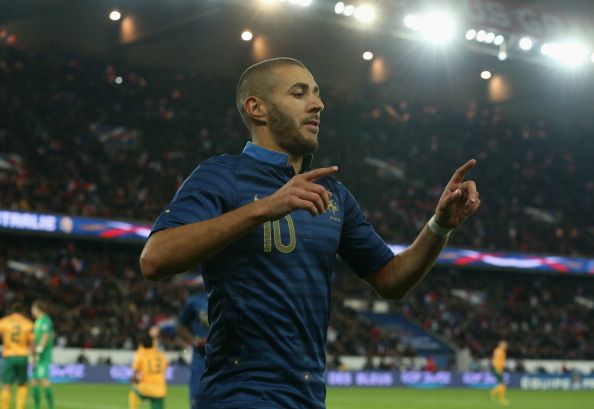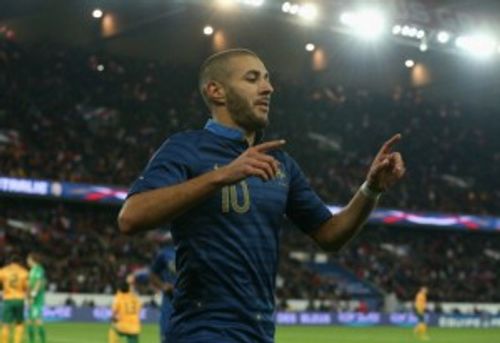
Of Karim Benzema and the archetypical French forward

As Franck Ribery’s relentless assault down the left flank saw the ball being cut back into the penalty box, it came as a surprise that Karim Benzema was able to direct a first-time finish past a goalkeeper, who, by that time, was in the throes of a deja-vu that will probably have him wanting to crawl into a hole and never be seen again.
Having suffered a similar fate not too long ago in a friendly against the globe-trotting Brazilians, this Australian team looks a far cry from the side that stretched eventual champions Italy to its sinews, all those years back in Germany ’06.
Even so, this friendly was a chance for a stop-start French side to finally work up any semblance of a rhythm; one that they could carry over into a Brazil that demands a flair from any football team that arrives on its shores.
Curiously, the fact that they did do exactly what was expected of them brought on a predominant sense of relief, more than anything else.
But then, for a French side that has flattered to deceive ever since a colossus head-butted his way into the sunset, the manner of this win will give them some much-needed confidence.
It came as even more of a surprise, then, to see Benzema’s subtle reaction upon scoring France’s sixth goal on the night. For a man who had just ended a goal drought of having gone 1,224 minutes without scoring a goal for his country, he appeared relatively unmoved in the moment.
Now while this may be considered a positive trait to have for a professional footballer – the ability to keep a level head in both good times, and bad – the reality surrounding Benzema is markedly different.
This is a man who not too long ago had the gall to come out and blame his teammates for his personal goal drought. In the wake of a 3-0 drubbing at the hands of a marauding Brazilian side, he accused them of not providing him with the required service.
I mean, come on, man, at least Fernando Torres had the decency to shoulder the blame for his own shortcomings!
Admittedly, in the 4-3-3, or slightly altered 4-5-1 that manager Didier Deschamps has preferred, being the lone striker can be tough. The focal point of attack has the responsibility of holding up the ball, clean and effective distribution, and above all, the nose to poach a goal when the chance presents itself.
But then, playing the role of the lone striker is something that Benzema has grown accustomed to in his time at Real Madrid. In fact, the man’s transformation, from being heralded as the new Nicholas Anelka, a la the new Le Sulk, in his early days in Madrid, to the time when he replaced a prolific Gonzalo Higuain in Mourinho’s starting line-up, has been hailed as a “test of character” by Mourinho himself.
Why does that “character” so mysteriously evade him when he turns out for the national team then?
Football, with all the permutations and combinations that go into selecting eleven players, and then deciding what to do with them, is a game that thrives on clarity of vision. It is why Mourinho has been successful wherever he has gone; the Portuguese has always known exactly what he wants from his team.
While Mourinho’s deft handling of a precocious Benzema has been widely appreciated, it is also telling that the only reason Benzema was not cast away from Madrid, as so many have before him, was because his manager was sure of his striker’s strengths and weaknesses.
Benzema is not the kind of player who will run his heart out for his team, even if the striker is very pacy on the ball. He is a lazy number nine, except that his technical and dribbling abilities outshine the vast majority of center-forwards out there. His game is only brought to the fore when he has players around him who will work the defenders and take the heat off him.